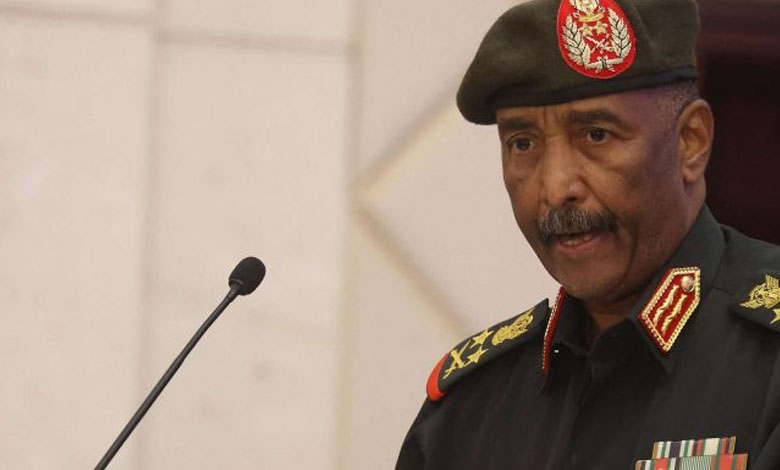Al-Burhan paves the way for escalation by suspending ceasefire negotiations

The Sudanese army has suspended talks on a ceasefire and facilitating humanitarian aid in Jeddah, according to a Sudanese diplomatic source, raising fears of more bloodshed and increasing chaos, which confirms the view of the Rapid Support Forces (RSF) that army factions loyal to the Muslim Brotherhood and the former regime within the military establishment reject the ceasefire and are behind the successive violations of the truce.
The decision to withdraw came a day after the head of the National Council for Sovereignty, General Abdul Fattah Al-Burhan, threatened on Tuesday to use lethal force against the Rapid Support Forces led by General Mohamed Hamdan Daglo (Hemeti), on the first day of a new truce of five days.
On Tuesday evening, Saudi Arabia announced its “full support” for US-Saudi efforts related to the ceasefire and the delivery of humanitarian aid to those affected by the conflict.
In a statement, the State Department said that it “sincerely and sincerely renews its full support for the Saudi-US initiative, sensing the magnitude of the suffering of our people, especially in the war-affected areas that were imposed on us and were not our choice at all.”
“Army violations continue, including aerial bombardments, overflights and marches, which have disrupted the main objective of the truce, which is to address the catastrophic humanitarian situation of the people,” it said. The army had no immediate comment on the accusations.
“Despite all this, we will continue our commitment to the truce, and we are working hard to make it a success,” she said.
“Military-to-military talks with rapid support began in early May and resulted in a declaration of principles committing to the protection of civilians, as well as agreement by both sides to brief, repeatedly violated ceasefires.”
The two sides agreed to extend the week-long ceasefire for another five days ahead of its scheduled expiration date on Monday night.
“The Sudanese army has violated every ceasefire since the conflict began, one after the other, raising fears of continued violence that could destabilize other states in the region.”
Residents reported fierce clashes as of late Tuesday south of the capital Khartoum and in the town of Omdurman on the opposite bank of the Nile river.
Saudi Arabia and the United States brokered the ceasefire and are monitoring its implementation remotely. The two countries said both sides in the conflict violated the agreement but allowed aid to reach an estimated two million people.
“The conflict has displaced nearly 1.4 million people from their homes, including more than 350,000 who have crossed into neighboring countries.”
Areas of the capital have been heavily looted and suffer frequent power and water cuts. Most hospitals have stopped functioning.
The UN, some aid agencies, embassies and some agencies of the Sudanese central government have moved their operations to Port Sudan, a major shipping hub with little disruption.
Al-Burhan, the Commander-in-Chief of the Armed Forces, and his opponent, Hemeti, served as Chairman and Vice-Chairman of the Governing Council, respectively. The council was formed to run the country following the ouster of former leader Omar al-Bashir following a popular uprising in 2019.












